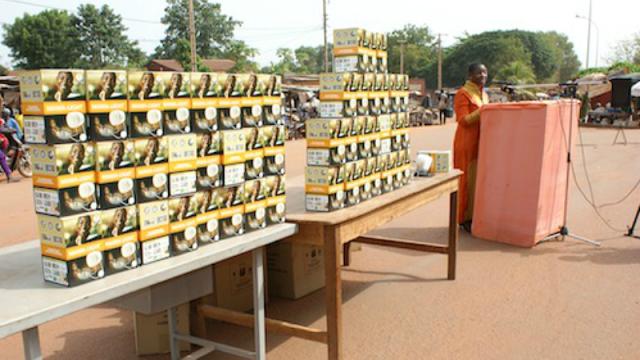Many people living in Africa need electricity, but don’t have it. Luckily, something of a solar power revolution is afoot in Africa, triggering a wave of innovation from solar energy entrepreneurs. One of them is a princess descended from an ancient Mossi warrior, who stresses that the best way to combat this problem is by empowering the people to educate and help themselves.
Princess Abzeita Djigma from Burkina Faso in Western Africa runs a company called AbzeSolar, which provides a host of solar power products to rural areas and villages. The locals install and sell the products themselves, thereby providing renewable electricity to the people, but also boosting local economy.
Last month, Djigma’s company was picked as one of 14 winning innovators as part of a competition held by the United Nations to address the 17 Sustainable Development Goals, and she presented at UN Headquarters in New York.
Djigma is a descendant of warrior princess Yennenga, considered the mother of Burkina Faso’s Mossi ethnic group, making up 40% of that country’s current population. So Djigma says she feels a sense of responsibility to help her own country, and beyond. Her “Mama-Light” product line includes solar-powered street lights, solar water heaters, portable reading lamps, huge arrays of solar panels for businesses, and more. Then, AbzeSolar provides technical training to the local communities so that folks know how to install and maintain the solar products.
This method of solar production and education among communities is catching on. Earlier this year, we reported on Gravity Light, a Kickstarter that wants to produce a clever lamp that needs no batteries, outlets, or even sun to illuminate. Ideally, communities in places like Kenya could start producing it themselves as a local business. Hopefully we’ll see more innovators, like Djigma, help empower people by giving them the tech they need to get on the electrical grid.
Image via AbzeSolar.
This story is part of a special series about the United Nations’ plans to solve global issues using emerging technology. Read more about it here.
